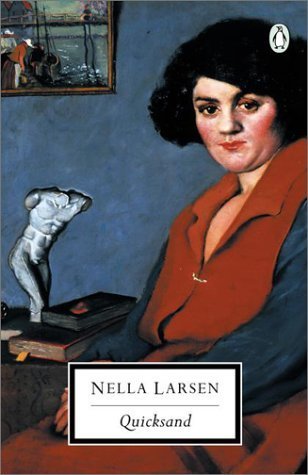TL;DR
Nella Larsen's 'Quicksand' explores the complex identity struggles of Helga Crane, a biracial woman navigating societal constraints in 1920s America and Denmark, ultimately confronting the challenges of self-acceptance and emotional freedom.
What is Quicksand about
'Quicksand' is a poignant novel that centers on Helga Crane, a woman who grapples with her biracial identity and societal rejection. Born to a white Danish mother and a Black father, she experiences profound alienation in both the African American community and the white world. The narrative follows her journey from teaching in a segregated Southern school to seeking solace in Harlem and eventually Denmark, all in pursuit of belonging and happiness. As she explores love, career, and race, Helga's quest for identity reflects broader themes of racial and gender constraints within the context of 1920s African American culture.
Quicksand 7 Key Takeaways
Helga's early life and identity struggle.
Helga Crane's complex identity is shaped by her biracial parentage, leading to feelings of alienation from both the white and black communities. This early struggle sets the stage for her ongoing quest for acceptance.
Teaching in the South.
Helga takes a teaching position at an all-black school in the South but finds herself feeling out of place, reinforcing her sense of isolation and prompting her search for a more fulfilling life.
Move to Harlem.
In Harlem, Helga immerses herself in the vibrant cultural scene, hoping to find community and understanding, yet she continues to battle with her identity and sense of belonging.
Journey to Denmark.
Helga leaves the United States for Denmark, believing she might find solace in a new environment. However, her experiences there further complicate her identity as she confronts both cultural differences and personal disillusionment.
Helga's romantic relationships.
Throughout her journey, Helga engages in various romantic relationships that reflect her ongoing struggle for emotional freedom, but these ultimately lead to disappointment and further alienation.
Return to America.
After various attempts to find herself in different cultural contexts, Helga returns to America, wrestling with the realization that true happiness remains elusive and often out of reach.
Acceptance of her circumstances.
In the end, Helga surrenders her pursuit of happiness, coming to terms with her situation and the limitations imposed by society, ultimately leading to a poignant reflection on her life choices.
Top Quicksand Quotes
- 'I have often wondered what it is that makes a life worth living.'
- 'The trouble with me is that I am never satisfied with anything.'
- 'I wanted to be free to live my own life, to be myself, and to love without fear or restrictions.'
Who should read Quicksand?
'Quicksand' appeals to readers interested in themes of race, identity, and gender, particularly those who want to explore the nuanced experiences of biracial individuals in early 20th-century America. It offers profound insights into the struggles for self-acceptance and the societal constraints that shape personal choices.
Quicksand Best Reviews
- 'Larsen's 'Quicksand' is a compelling exploration of identity, beautifully capturing the nuances of race and gender through the lens of a deeply personal narrative.' - The New York Times
- 'A brilliant debut that resonates with the struggles of finding one's place in a world that often denies you belonging.' - The Chicago Tribune
- 'Nella Larsen deftly intertwines autobiography with fiction, creating a rich tapestry of experiences that speak to the heart of cultural identity.' - The Atlantic
People also liked these summaries
Quicksand FAQs
Is 'Quicksand' based on a true story?
'Quicksand' is not based on a specific real-life story but reflects the real-life experiences and struggles of biracial individuals, particularly during the 1920s, addressing class and racial inequalities.
What is the main message of 'Quicksand'?
The main message of 'Quicksand' explores the complexity of identity amidst societal restrictions, emphasizing the challenges of self-acceptance and the search for belonging in a racially segregated world.
